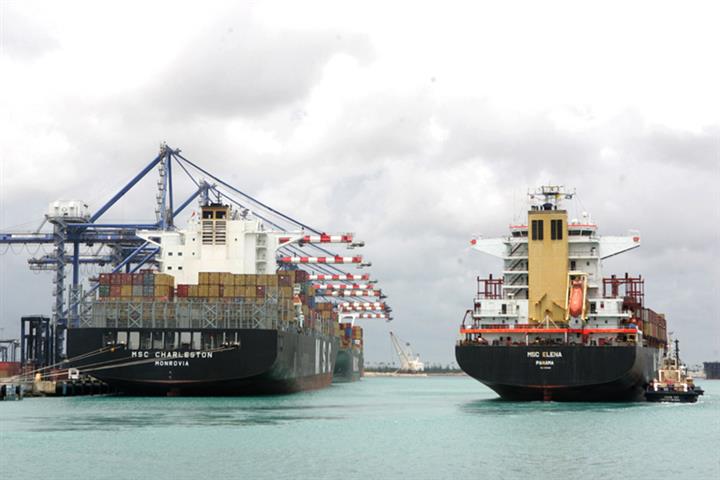 Surging Shipping Charges, Lack of Containers Hit Chinese Exporters Hard
Surging Shipping Charges, Lack of Containers Hit Chinese Exporters Hard(Yicai Global) Nov. 23 -- Global demand for consumer goods is growing in the run-up to Christmas, but this is proving less than a bonanza for Chinese producers and exporters because of soaring sea freight costs and difficulty booking shipping space due to a lack of containers, an industry insider told Yicai Global.
Demand for bicycles, home appliances, laptops, mobile phones, fitness equipment and other must-have products in the stay-at-home economy era remains robust before Christmas amid the Covid-19 pandemic, the source said.
Shipping rates have surged over the past month because of an acute shortage of containers and shipping space, so exporters have to sit back and wait their turn despite explosive export demand, Lou Lei, general manager of Yiwu Tianpeng International Freight Forwarding, told Yicai Global.
“One container can accommodate CNY50,000 to CNY60,000 (USD7,620 to USD9,410) worth of products, but the freight [rate] for one container has risen 30 percent to tens of thousands of yuan,” said Lou, whose company serves Yiwu in China’s Zhejiang province, the world’s largest small goods wholesale market.
Long Odds
Shipping companies have even resorted to a lottery system to determine whose goods to move, according to a staffer with a major Shanghai-based freight forwarder.
Lou’s company is unable to book space with any transport companies even a month in advance because of rising shipping costs and difficulty securing space and containers, he said. Instead of climbing with demand, the firm’s business has instead dropped about 30 percent, Lou added.
Ship owners who mothballed vessels in the first half to cut costs amid the coronavirus pandemic failed to anticipate the recent swift recovery in overseas demand and the huge jump in exports, especially from China, and so vessel recommissionings and workforce returns have lagged, the staffer at the Shanghai freight firm said.
China lacks shipping capacity as huge containers stack up in ports and terminals abroad, mainly because they go overseas full of Chinese goods but do not return because of a lack of goods from foreign markets, said Yang Jie, a senior official at the Asia-Europe land bridge international freight train coordination service center under the China Communications and Transportation Association.
Coronavirus control measures at ports and tight employment policies are another factor worsening the dearth of transport capacity. Two-week quarantines of ships and their crews arriving in ports and nucleic acid testing for sailors have slowed customs clearance, another key reason for containers to sit rusting abroad.
Editors: Tang Shihua, Ben Armour, Xiao Yi